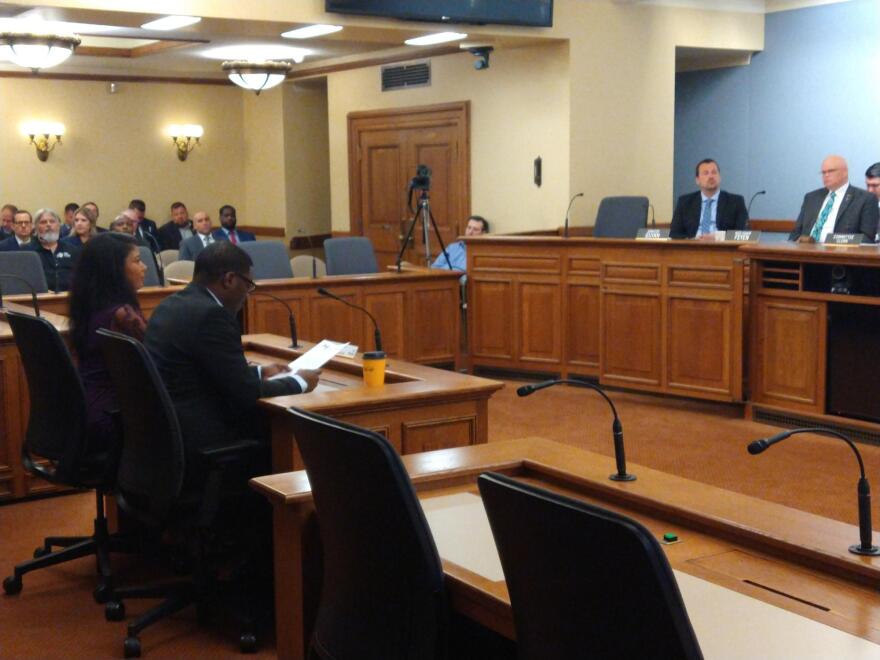City and county leaders of Milwaukee say they like most of a shared revenue bill now before a State Senate committee. But there's still a push to change key parts of the legislation.
The revised bill that came out of the State Assembly last week would bring the biggest increases in shared revenue — that is, state payments to local governments — in decades.
Almost all communities would receive at least a 15% increase. Milwaukee and Milwaukee County would get a ten percent hike but could raise more revenue by creating a city of Milwaukee sales tax or increasing the county sales tax.
But Republicans who control the Senate and those who run the Assembly disagree on whether the two Milwaukee governments would have to hold referenda and get voters to pass the sales tax increases. Milwaukee Mayor Cavalier Johnson sides with a Senate plan to simply allow the Milwaukee County Board and Common Council to take action.
"Common Council members are close to the communities they represent and can make informed and timely decisions on behalf of their constituents to move Milwaukee forward. A referendum adds a significant element of uncertainty. And next year, none of us want to re-visit all the hard work we've been doing that has brought us to this point now," Johnson testified Tuesday to a State Senate committee reviewing the shared revenue bill.

Milwaukee County Executive David Crowley says he favors having the County Board decide on raising the county sales tax.
"But if we had to go to referendum, it would require us to do a lot more work. We'd have to continue to go to voters and have to explain to them why we need those dollars," he said.
Crowley says a key part of the need is to meet upcoming pension obligations for county and city of Milwaukee retirees.
The Milwaukee police and firefighters unions usually have a lot of clout with Republican Legislators. Police Association President Andrew Wagner told lawmakers that elected bodies should be able to vote on sales tax increases.
"We need this referendum today. I mean, we need this bill today. We need that funding guaranteed coming into the city, not on a possibility, but on a guarantee that we will be able to fund the police officers and firefighters that we need," Wagner said.
Wagner says the police department is down 200 officers from five years ago, and hopes the city sales tax and shared revenue increases would mean adding at least 100 officers.
There is reportedly talk among some GOP lawmakers about making the County Board and City Council reach unanimous votes on sales tax increases. Mayor Johnson says he'd oppose that.
"Nowhere in the United States for Legislative bodies is a requirement for there to be unanimity on any one particular vote. Even when this bill was brought up in the Assembly, there was not unanimity in the Republican caucus," Johnson told news reporters outside the hearing room.

The other key difference of opinion between Assembly Republicans and local officials has to do with a provision that would curtail city and county DEI (diversity, equity and inclusion) efforts in hiring and awarding of contracts. Milwaukee Common Council President Jose Perez says many Milwaukee companies have DEI efforts.
"From Northwestern Mutual on down, from the Bucks, every organization has those. Even at the city, we have an employee resource group. And we want to be competitive that way. We want to make sure our DEI programs are just as robust as the businesses we serve," Perez testified.
Crowley calls county DEI efforts a recruitment and retention tool. "This is about retaining our employees, but also recruiting new employees. We know this is a candidate's market, so we know that in order to compete with many of the private entities, we have DEI," Crowley told lawmakers.
Crowley says the county would continue to follow federal grant requirements and use methods to diversify which companies are hired to work on nationally-funded projects.
State Senate action on the shared revenue bill is expected relatively soon. But media also learned at the hearing that talks continue between Democratic Gov. Tony Evers and GOP leaders on possibly reaching a final shared revenue deal.






